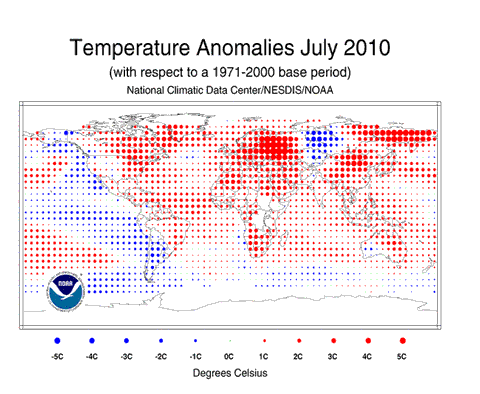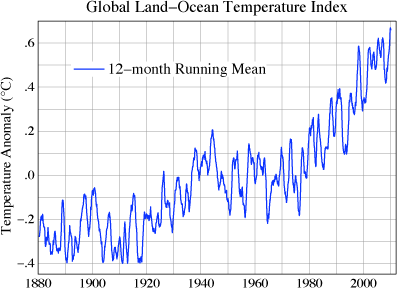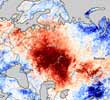
This is the first in a series of guest blogs from the Cancun climate conference by Oxfam NZ’s executive director Barry Coates.
I’m sitting in the warm evening air of Cancun after the first day of the climate change talks. It was quite a trip getting here – I came from Timor Leste and the journey took 60 hours!
It was a great preparation for me to go to Timor Leste first. It is the poorest Asian country, still recovering from a bloody and traumatic struggle for independence. I visited some remote rural agricultural cooperatives with Oxfam’s partner, Movimento Cooperativo Economico Agricola (MCE-A). These were small growers, generally farming a hectare of customary land and working on a larger plot with other members of the cooperative. They have recently increased their income through support from MCE-A. They use a revolving loan scheme to invest in hand-tractors and milling machines, and have dramatically improved yields from sustainable rice intensification using permaculture techniques. It is a really inspiring programme that is driven by the cooperatives themselves. You can read about their work here.
But in a country with high levels of malnutrition and months without enough food, these farmers have just experienced a disaster. This is not one we read about in the papers but one of the many thousands of disasters that happen around the world, affecting farmers such as those in Zumalai in Timor Leste. During the dry season they had unprecedented levels of heavy rainfall that caused floods and damaged their irrigation canals. The communities of Zumalai live a tenuous existence and disasters like this are the difference between them and their children having enough food for their needs – or not.
This is a typical situation faced by farmers around the world. Weather has become more extreme and unpredictable, and seasons have changed significantly over recent years. This is the backdrop for Oxfam’s new report Now More Than Ever: Climate talks that work for those who need them most, which says that 21,000 people died due to weather-related disasters in the first nine months of 2010 – more than twice the number for the whole of 2009. This year is on course to experience more extreme-weather events than the last ten-year average. Many countries have also broken heat records, with Pakistan logging 53.7°C – the highest ever in Asia.
These are the people who did little to cause climate change. But they are the ones suffering most. This is a good reminder of why we are in Cancun.
Behind these numbers are the stories of people’s lives. Not only millions of people suffering from the massive flooding in Pakistan or those affected by heat waves in Russia, but all of those whose destroyed lives and livelihoods never make it into the statistics or the media. It is the flooding affecting people in places like Zumalai in Timor Leste or the low-lying coasts of Bangladesh. It is those suffering from cyclones, king tides and sea swells in small islands across the Pacific. It is people struggling to cope with droughts across the arid zones of sub-Saharan Africa, and even in unexpected places like the Papua New Guinea Highlands. These are the people who did little to cause climate change. But they are the ones suffering most. This is a good reminder of why we are in Cancun.
When I arrived here, I was roped into Oxfam’s campaign launch, featuring a great image on the beach. This giant message in a bottle says “Urgent: Save lives in Cancun” and has featured in newspapers and websites around the world. I also joined in an opening event for the Global Campaign for Climate Action (the TckTckTck campaign). Yesterday, TckTckTck and partners built a ‘Mayan Pyramid of Hope’. Pyramids were built through collective will, and the ‘Pyramid of Hope’ serves as an affirmation of this collective will, showing what can be achieved if we work together. It is a message from tens of thousands of people around the world representing their aspirations for concrete action and real progress in Cancun. The pyramid is covered with photographs of people taking action in their communities to tackle climate change. UNFCCC Executive Secretary Christiana Figueres wrote her hopes on one of the pyramid’s building blocks: “Commitment and compromise”.
The negotiations started today. Not much to report, except for the usual highs and lows of political game-playing. The bad news was that Japan said that they would not, under any conditions, agree to a second commitment period of the Kyoto Protocol (which would mean that they would agree to reductions in greenhouse gas emissions after the end of 2012, when the first commitment period runs out). It is a bit ironic that it is Japan, the home of the Kyoto Protocol that is joining the US in not agreeing to these reduction commitments. The danger is that other countries, notably Canada and Russia, but also Australia and (shamefully) New Zealand, are likely to use this announcement to hide behind Japan and “kill” the Kyoto Protocol. This is a serious setback. The “like-minded countries” already went ahead in 1997 and signed the Kyoto Protocol without the US. But the like-minded group looks a lot smaller without those other countries as well. The EU is unlikely to agree to go it alone. This is a blow to many developing countries that have signalled their willingness to reduce emissions themselves. Even tough negotiators like China are making long-term commitments to reduce their emissions through renewable energy, clean technologies and shutting down polluting factories.
The good news from Day One is that a number of countries have made statements saying how important it is to make progress – to pick up the pieces after Copenhagen and move on. There are real gains that can be made on issues such as establishing a new climate fund that would channel money to the countries bearing the brunt of climate change, particularly the small and vulnerable nations (such as the Pacific islands), and to support emissions reductions in the developing world. And progress is possible on getting an agreement on adaptation and technology transfer. Other agreements that may come from Cancun are potentially more problematic – I will report out on the discussions around forests later this week. So the good news today is ‘mood music’ but a refreshing change after the trauma of Copenhagen.
But now it is late and I’m still in recovery mode, trying to figure out what time zone I’m in. I may miss a day or two of blogging this week while things are a bit slow, but I’ll write daily posts when Environment Ministers and some heads of state roll into Cancun next week.
I’ll leave you with the words of the negotiator from Tuvalu, again toughly defending their right to survive as communities, as a culture and as a nation: “Give life to KP (the Kyoto Protocol) or take the lives of people in vulnerable island countries”. The stakes are high in Cancun.
Like this:
Like Loading...








